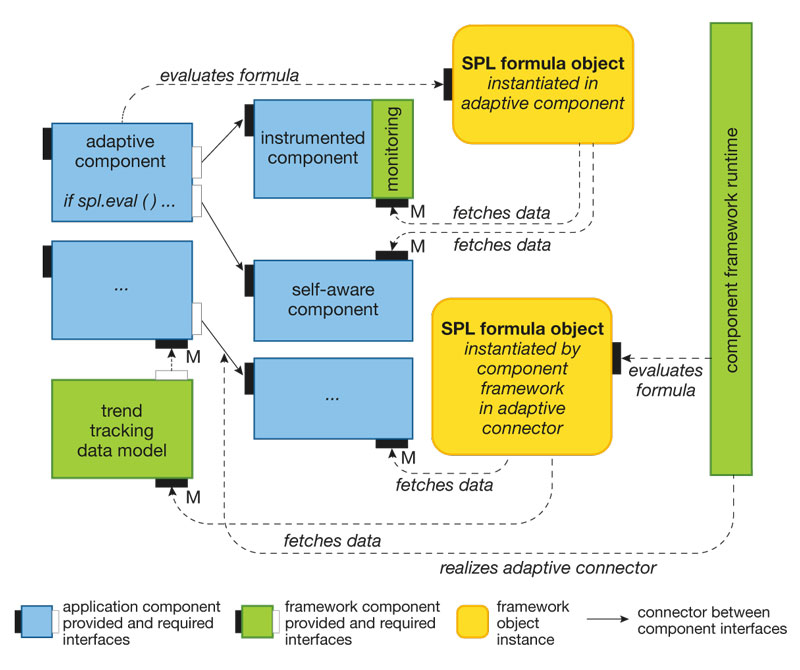| SPL - Stochastic Performance Logic |
 |
 |
 |
|
SPL is a many-sorted first-order logic designed to reason about observed performance using intuitive expressions such as “A is faster than B on workload X”. The logic relies on a sample-based interpretation, where the individual performance relations are evaluated using sta-tistical hypothesis testing on collected measurements. The relations are evaluated in the context of a particular workload, parametrized by settings such as input data size. Both declarative annotations and explicit evaluation are used to connect the logical formulas to code in application development and execution - as is the case in the examples of adaptive components and connectors. In both cases, code is associated with expressions that capture assumptions about performance and therefore help interpret the observed performance in the light of the available adaptation steps. These steps can include code adaptation identified by the IRM as part of the standard application execution, as well as manual code adaptation that the IRM delegates back to the ensemble development process.
SPL is implemented in prototypes that use automated code instrumen-tation through the Domain-Specific Language for Bytecode Instrumen-tation tool (DISL) to monitor the application. These prototypes demonstrate the use of the formalism in the testing domain, where assumptions about the application and environment performance made in the early stages of the development life cycle can be checked through testing. Further Information: |
| Last Updated on Monday, 09 March 2015 14:47 |



